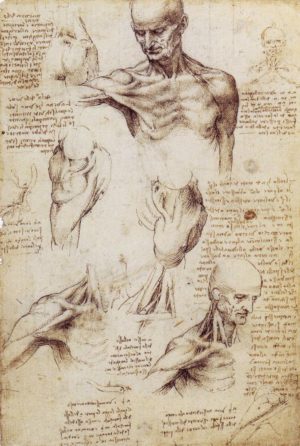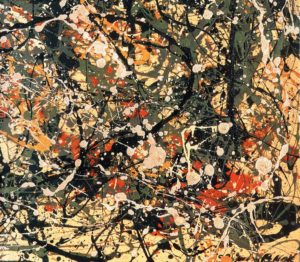Smartphone Camera: The Filmmaker’s Sketch Tool
When I was studying art as a young man, my art teachers said, “You must sketch every day”. They told us to buy sketch pads and pencils and make sure we had one with us at all times.
If you are waiting for the bus – sketch. If you are have coffee in a cafe – sketch. Sitting on the toilet – sketch.
Practice regularly
If you’ve never done any art seriously, you might not know what sketching is or why you would bother with it.
Well, on the one hand it is simple practice. If you have ever tried to learn a musical instrument, you will be aware of the amount of practice involved just to get basic music from the instrument. What are we talking – 30 minutes a day, minimum?
Art is no different. It requires practice. And sketching is something we can do quickly and spontaneously, to get better at drawing and visualising our ideas.
Most great artists used sketching
The sketches of Leonardo da Vinci are famous. For Leonardo, they were a way for him to quickly get ideas from his head into some kind of form. They were preparation for the final work. For us, they are an insight into the workings of Leonardo’s mind, skills and talent.

With Leonardo’s drawings, we can look “behind the scenes”. How did he manage to create those great painted masterpieces? Check those sketches for clues.
And pretty much all major artists since have used sketching as a way to develop their skills and their ideas.
You need to be working
Imagine if Leonardo went directly to the big oil canvas and just started dabbing on the paint without any kind of preparation. I doubt we would be talking about him now. The sketch above reveals the work that went into understanding the human form.
What made Leonardo stand out from the rest? Was it all that preparation?
About the same time I was at art college, I wanted to be a film director. And I remember reading about how hard it was for filmmakers to practice their craft, due to the expense of filmmaking.
That excuse no longer applies, does it?
That HD to 4K resolution camera you have in your pocket is – at the very least – a great sketching tool. Because as a filmmaker you improve your skills and ideas by sketching them with your smartphone camera.
You don’t have to wait until the first shoot day, when you have all the crew and cast and $$$ worth of kit. That would be like Leonardo turning up to paint, unprepared. Splashing expensive oils everywhere, trying to make it up as he went.
Even Jackson Pollock, who made his name by splashing paint in an apparently random fashion, developed that concept and style over years.

By the way, Pollock used ordinary house paint for his famous works – the filmic equivalent of using a smartphone camera.
Smartphone cameras are a liberation
Because most of us have one in our pockets, they’re even less of an encumbrance than my old sketch pads and pencils.
To become a better artist, I was told I needed to be sketching every day. It’s like working a muscle – your visual, creative muscle. Keep using it and it gets stronger.
Don’t overthink it. That’s the beauty of sketching. Sketch for 20 minutes. Then turn the page and sketch again.
If you are a filmmaker, why wouldn’t you do the same? Because you think you’re only being a serious artist when you have the “proper” tools in your hand? History would disagree with you.
Serious artists are working at every opportunity. They’ll jot down their script idea on a restaurant napkin, mumble some thoughts into a voice recorder on their way to work, or quickly snap a shot of a some sunlight filtering through a window in an unusual way.
Your smartphone is your sketchbook – and it might become a work of art one day!
Some painters’ sketchbooks have become famous over the years. Leonardo da Vinci is one artist whose sketches are very well known, Edgar Degas is another. In fact, so important are they to the development of art, they have grown to become works of art in their own right.
What does this mean in practical terms? It means, don’t wait for the big moment. While you’re waiting for the bus – get your smartphone out and try some shots.
If you’ve got a film idea or script – maybe a short film or longer – why not get some actor friends (or put the word out online) and sketch out the the short. Or some scenes from a longer script.
You don’t need to worry about lights, sound crew, specific locations and all the rest. Just you, your smartphone, some actors and a good space where you wont get disturbed.
Now you can play around with your story and try out some shots, without the pressure of this being the “big moment”. Just like Leonardo prepared himself with sketches before he attempted to create those epic oil paintings on canvas.
Sketching allows you to experiment. Plus it means you can work that filmmaker muscle every day and get stronger.
Don’t forget to edit those sketches
Edit those shots together. Show some trusted friends your sketched version of your short script and see what reaction you get. Probably you’ll get extra insight into your writing and your storytelling skills.
You’ll see what works and what doesn’t work, without the huge investment in time and money required when shooting with a crew and professional equipment.
I think many aspiring filmmakers would think of the idea of creating video sketches as somehow “unprofessional”. While actually it’s the opposite – the top artists from history and today use sketching to develop their skills and ideas.
If you want to be a better filmmaker you need to be making films. As often as possible. So get out your smartphone sketch pads and sketch.
Consider Supporting us on Patreon.
We have a limited offer! Be listed on our exclusive filmmaker network page and submit any films to our festival free.
Eager to learn more?
Join our weekly newsletter featuring inspiring stories, no-budget filmmaking tips and comprehensive equipment reviews to help you turn your film projects into reality!
Simon Horrocks
Simon Horrocks is a screenwriter & filmmaker. His debut feature THIRD CONTACT was shot on a consumer camcorder and premiered at the BFI IMAX in 2013. His shot-on-smartphones sci-fi series SILENT EYE featured on Amazon Prime. He now runs a popular Patreon page which offers online courses for beginners, customised tips and more: www.patreon.com/SilentEye


